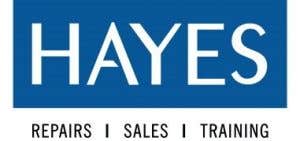Respirator and Surgical MaskGuidelines in Dental Settings During COVID-19
We all know that the CDC is one of the most reliable sources for information on health. They work hard to monitor and study various diseases, treatments, etc., making sure we are kept up-to-date with any changes in recommendations or new findings. Recently they published a scientific brief about cloth masks which can help reduce transmission rates during SARS outbreaks. In order to be effective against this virus type it has been found that these types of masks must have an N95 rating (or higher), contain some form of wet material such as gauze soaked in disinfectant solution and fit snugly around your face without touching uninfected individuals nearby.
What are respirators and surgical masks?
Respirators are designed to help reduce the wearer’s respiratory exposure to airborne contaminants such as particles, gases or vapors. Respirators and filters must be selected based on the hazards present. They come in various sizes and styles with different levels of protection depending on what is needed for your specific application. A proper seal between a person’s face (the user) and their respirator forces inhaled air to be pulled through the resin material thereby providing them adequate protection from these harmful substances that could otherwise pose serious health risks if not contained.
A surgical mask is an important part of any medical professional’s kit. They are designed to help prevent contamination and can be used in a variety of situations, from brain surgery to assisting at childbirth or performing CPR on someone who has been injured. A properly fitted face shield provides respiratory protection as well as eye protection for the wearer by providing a barrier against hazardous materials that might enter through small openings such as mouth or nose gaps.
Why do dental professionals use them during COVID-19?
When treating a patient who is positive or suspected to be positive for COVID-19, dental professionals are advised by the CDC and OSHA to use N95 respirators. As many practices across the United States return from summertime hiatus, they have been instituting this measure in order to protect employees when providing care as it can often take up 12 hours of work time per day.
Also, N95 respirators are OSHA-compliant and use is recommended by CDC. The masks protect employees in COVID situations but now they’re being used full time.
When should a dental professional wear a respirator or surgical mask?
As health professionals, dentists are amongst the front line of defense against infectious diseases. Dentists must follow strict standards to protect themselves and their patients from any potential harm that might be done by contact with contaminated instruments or body fluids such as bloods and saliva.
Dentists are required to follow strict safety standards in order to keep themselves and their patients safe. For example, dentistry is not only for those with infectious diseases because operators and patients can be asymptomatic carriers of the microorganisms that could affect anyone else while receiving dental care so it is imperative that they wear their respirator mask in the entire patient care schedule.
When airborne infection isolation precautions are necessary, a National Institute for Occupational Safety and Health (NIOSH)-certified particulate-filter respirator should be used. Most surgical masks do not meet the requirements to protect you adequately from exposure to COVID-19 patients; they also don’t satisfy OSHA‘s standards of respiratory protection. However, certain surgical masks that match NIOSH specifications may work as well as airtight filter mask when it comes down to preventing an airborne virus like COVID-19 from spreading in dental settings with susceptible people who need medical treatment.
Standards and guidelines for dental professionals include the use of respirators and surgical masks to help prevent cross-contamination, infection, and adverse events. Hayes Handpiece Repair USA offers comprehensive training on all aspects of dental guidelines and infection control.
To learn more visit the links below:
Hayes also specialize in instrument sharpening & repairs. Our experienced technicians have decades of experience working with all major brands of dental handpieces including:
A-dec | Beyes | Bien Air | Denticator | Hall | Henry Schein | Impact Air | Kavo | Lares | Midwest | Morita | Nobel Biocare | Nouvag | NSK | Patterson | Schein Master | Shamrock | Star | Strauman | Stryker | W&H | Young | American Eagle | HU Friedy | Nordent | PDT




